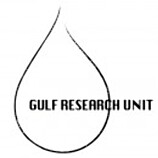
Archive: Gulf Research Blog
Blog articles from 2009 to 2012. The Gulf Research Unit is research programme based at the University of Oslo.
EU sanctions against Iran
Denne artikkelen er over ti år gammel og kan inneholde utdatert informasjon.
By Annette Wolden
Since 2003 Iran has not been fulfilling its International Atomic Energy Agency (IAEA) obligations.
In response to the controversies around the Iranian nuclear program, the UN announced its first round of sanctions against Iran in 2006. New rounds of sanctions have since been announced in 2007 and 2008.
The passing of the forth round, the United Nations Security Council Resolution (UNSC) 1929 on 9 June 2010, was partly a result of the uncovering of a new nuclear facility in Qom in 2009.
EU sanctions go further
After the announcement of the new UN sanctions, the EU declared that it too would be imposing sanctions on Iran, based on the UN sanctions.
However, according to sources, the EU sanctions go even further in targeting Iran’s nuclear program and in preventing investments in Iran’s oil and gas sector.
According to the Council of the European Union’s press release, the Council adopted on 26.07.10 “a Decision implementing the measures contained in UNSC 1929 as well as accompanying measures, with a view to supporting the resolution of all outstanding concerns regarding Iran’s development of sensitive technologies in support of its nuclear and missile programs, through negotiation.”[1]
The press release further states that “the aim of the EU is to achieve a comprehensive and long-term settlement which would rebuild international confidence in the exclusively peaceful nature of Iran’s nuclear program, while respecting Iran’s legitimate rights to the peaceful uses of nuclear energy under the Nuclear Non- Proliferation Treaty.”
Officials said the package was “by some ways the most far-reaching sanctions adopted by the EU against any country”.[2]
Investment and finance
The sanctions focus on preventing oil and gas investment, stopping dealings with Iranian banks and insurance companies, and stemming financial transfers
What has been described by some as the hardest-hitting element of the sanctions, is the move to prohibit new investment in and technical assistance to Iran’s refining, liquefaction and liquefied natural gas sectors which are a mainstay of its energy-based economy.
The sanctions are intended to put financial pressure on Iran, which is the world’s fifth largest crude oil exporter but has little refining capacity and has to import about 40 percent of its gasoline needs for domestic consumption.
According to Mark Fitzpatrick, an Iran specialist at the International Institute for Strategic Studies, most of the sectors that have been targeted in the EU sanctions are ones over which Europeans have a substantial leverage.[3]
Declining oil export
Iranian Foreign Ministry spokesman Ramin Mehmanparast reacted to the passage of EU sanctions stating that “these sanctions will not help in resuming talks and will not affect Iran’s determination to defend its legitimate right to pursue a peaceful nuclear program”.[4]
According to EU officials the sanctions will be the end for international companies operating in Iran.
By targeting the energy sector, the EU sanctions will have economic implications for Iran. The UN sanctions have already affected Iran’s ability to export oil.
OPEC statistics show that Iran’s crude oil export has declined by 8.5% since 2005.[5]
The sanctions have also led to a market shift, where Asia has become one of the largest markets for Iranian exports, rising from 23% of Iran’s total oil exports in 1995 to 36% in 2009.
Exports to Europe made up 47% of the total exports in 1995, but only 25% in 2009, even before the implementation of the new EU sanctions.[6]
European refiners still buy at least 238,000 barrels per day (bpd) from Iran, down from 608,000 bpd in 2008, while Asian refiners take roughly 1.4 million bpd.[7]
Will not discuss program
The reasoning behind the EU sanctions was to increase pressure for a diplomatic solution after the nuclear negotiations stalled last year.
New negotiations were to be held from November 11-17.
However, an adviser to President Mahmoud Ahmadinejad stated on the 31.10.10 that Iran would not discuss its nuclear program at talks with global powers.[8]
In addition, Iran fueled the Russian-built Bushehr nuclear plant earlier in the week.[9]
These actions both contributed to adding fresh doubt to the chances of a negotiated end to Iran’s standoff with the West.
[1] Link
[2] Link
[3] Link
[4] Link
[5] Link
[6] Link
[7] Link
[8] Link
[9] Link






